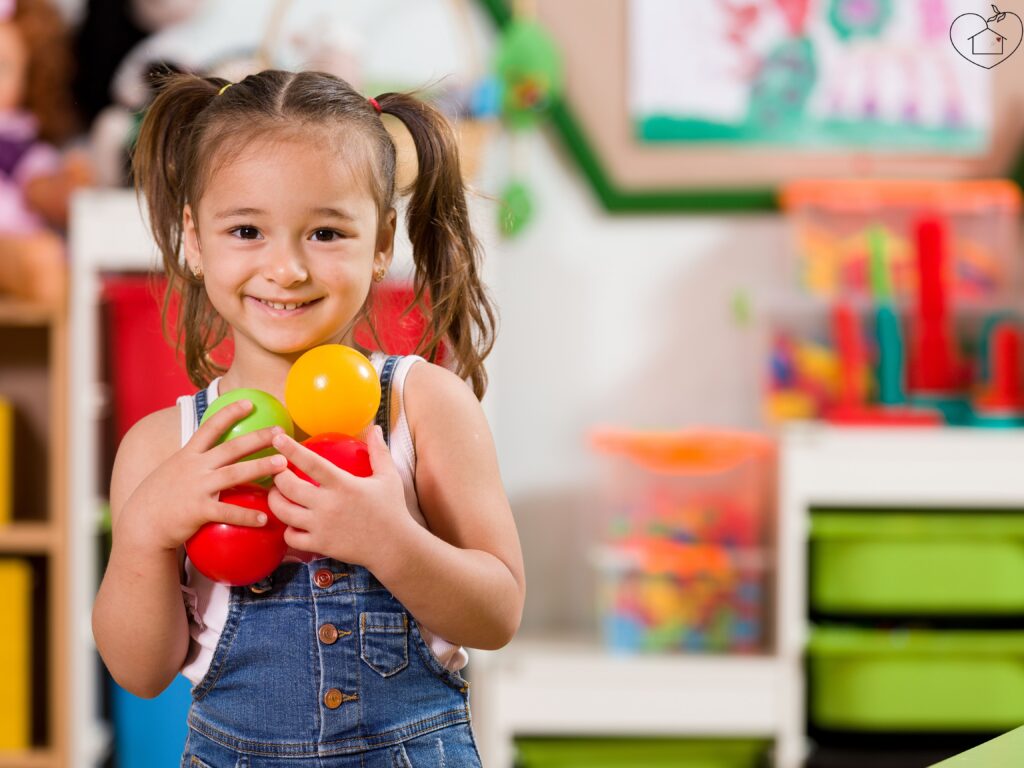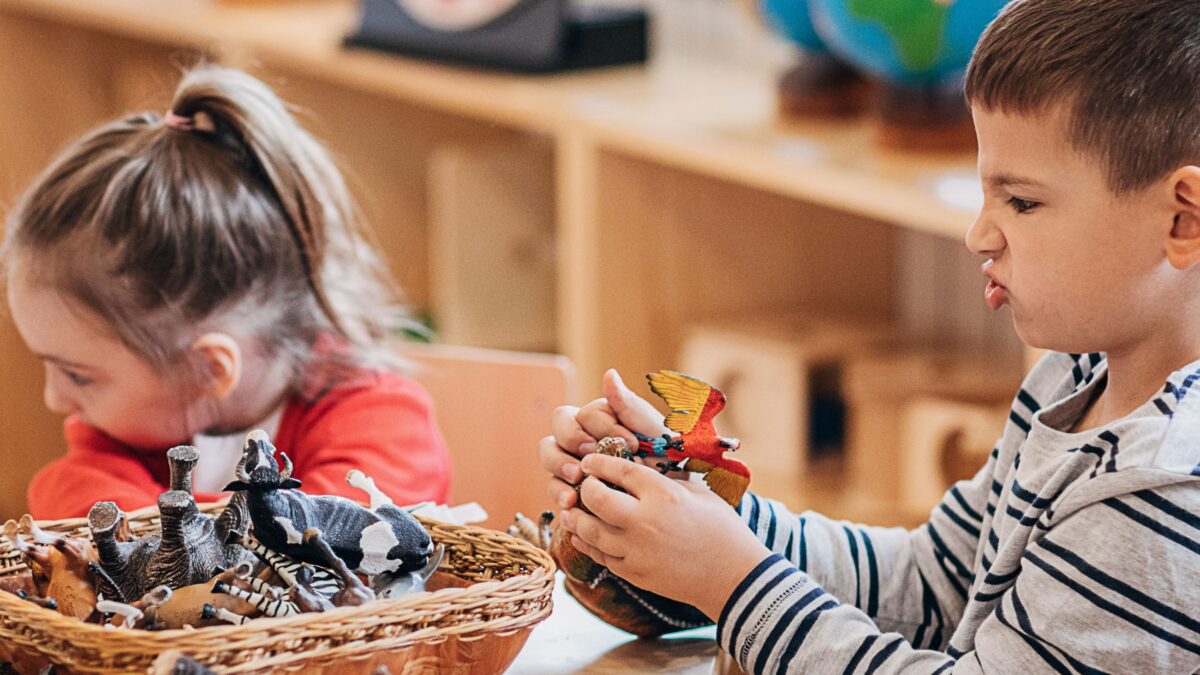The preschool age, typically between 3 and 5 years old, is a time of rapid growth in a child’s physical, emotional, social, and cognitive abilities. This stage is often referred to as the “magic years” because children are full of curiosity, imagination, and a desire to learn about the world around them. In this article, we’ll examine the developmental features of preschool age, explore psychological wisdom, and provide friendly advice to help parents nurture their child’s potential during this essential time.
Table of Contents
ToggleDevelopmental Features of Preschool-Age Children
Preschool-aged children undergo significant changes in various areas of development. Here’s a look at what’s typically happening in each domain:
1. Physical Development
Preschoolers show improved coordination, balance, and control over their bodies. Their motor skills advance rapidly, allowing them to run, jump, and play with more independence. Fine motor skills are also developing, allowing them to draw, use scissors, and immerse in hands-on play.
Example: At this age, children enjoy activities like drawing, building with blocks, and playing with puzzles, which help improve hand-eye coordination and muscle control.
2. Cognitive Development
Cognitive abilities at this age are expanding quickly. Preschoolers can recognize patterns, sort objects, count to ten, and begin comprehending simple cause-and-effect relationships. Their memory improves, and they start developing problem-solving skills, curiosity, and a love for asking “Why?”
Example: When children experiment with stacking blocks or creating make-believe scenarios, they immerse in cognitive exploration, laying a foundation for more complicated thinking.
3. Language Development
During the preschool years, vocabulary grows significantly, and children start forming more complicated sentences. They enjoy storytelling, asking questions, and can often follow two-step instructions. Their language abilities become a strong tool for expressing thoughts, emotions, and desires.
Example: Preschoolers enjoy listening to stories, singing songs, and immersing in conversations. These activities improve their vocabulary and help them comprehend the structure of language.
4. Social and Emotional Development
Preschool-age children begin to comprehend social norms and develop empathy. They start learning to share, take turns, and cooperate with others, although they may still need help managing big emotions. They are developing a sense of self, and you’ll often hear them say things like “I can do it myself!”
Example: Playdates are common at this age, allowing children to learn social skills, practice empathy, and comprehend boundaries in a friendly environment.
5. Imaginative Play and Creativity
Imaginative play is a crucial part of preschool-age development. Children enjoy creating imaginary worlds and pretending to be different characters. This play supports emotional regulation, creativity, and problem-solving.
Example: When a child pretends to be a superhero or a teacher, they find different roles, emotions, and situations, improving both cognitive flexibility and social skills.
Psychological Wisdom on Preschool Age
From a psychological perspective, preschool age is seen as a foundational stage for shaping social behavior, self-confidence, and emotional intelligence. Developmental psychologists like Erik Erikson consider this phase the “initiative vs. guilt” stage, where children begin to assert control over their environment and seek a sense of purpose. Encouragement from parents and caregivers helps children build confidence in their abilities.
Jean Piaget, a well-known developmental psychologist, describes preschoolers as being in the “preoperational stage,” where they think symbolically and use words and images to represent objects. They’re also highly egocentric at this stage, meaning they view the world primarily from their perspective, which is normal and an essential part of cognitive growth.
This period is essential for nurturing secure attachment and a sense of safety. A supportive environment promotes resilience, curiosity, and a willingness to find, shaping a child’s emotional and social foundation for the future.
Parents of Preschool-Age Children
1. Encourage Curiosity by Answering Their Questions Patiently
Preschoolers are naturally curious and often ask “Why?” about everything they encounter. While it might feel repetitive, answering these questions with patience encourages a love for learning, showing them that their thoughts and questions are valued.
Example: If your child asks why the sky is blue, instead of brushing it off, try answering simply. You could say, “It’s because of the way sunlight interacts with the air.” Let them know it’s okay to ask questions and that examining the world is exciting.
2. Promote Independence with Gentle Guidance
Preschool-age children crave independence, so it’s essential to give them age-appropriate responsibilities. Encouraging them to try tasks by themselves boosts their self-confidence and prepares them for school.
Example: Let your child help set the table or pick out their clothes for the day. Praise their efforts, even if it’s not perfect. This encouragement builds their sense of accomplishment and promotes a “can-do” attitude.

3. Set Consistent Boundaries with Kindness
Children at this age thrive on structure, but they also need empathy and flexibility. Set clear expectations and boundaries while being empathetic to their emotions. Consistency helps children feel secure, but gentle guidance is equally important.
Example: If your child is upset about bedtime, acknowledge their feelings and explain the routine: “I know you want to stay up, but bedtime helps us rest and feel good tomorrow.” Balancing empathy with boundaries creates trust.
4. Immerse in Imaginative Play Together
Joining in on imaginative play helps you bond with your child and encourages their creativity. Letting them take the lead in pretend scenarios shows you value their ideas and allows them to express their emotions through play.
Example: If they want to play house, let them assign roles. Ask questions like, “What are we cooking today?” or “Where are we going?” This interaction encourages language development, empathy, and problem-solving.
5. Model Positive Social Interactions
Preschoolers learn social behaviors by observing adults. Modeling kindness, patience, and sharing teaches them these values firsthand. Praise them when they show empathy or kindness, reinforcing these behaviors as positive.
Example: If they witness you helping someone, explain why kindness matters: “We helped our neighbor because it’s nice to support each other.” This modeling gives real-life examples of positive social behavior.
6. Provide Plenty of Opportunities for Physical Play
Physical play is vital for motor skill development and helps children manage energy levels. Encourage activities like running, climbing, or dancing, allowing them to examine their physical abilities and develop balance and coordination.
Example: Organize a mini obstacle course in the backyard or have dance sessions indoors. Physical activity helps children manage emotions and builds their confidence in their physical abilities.
7. Read Together Every Day
Reading to your child daily promotes language development and strengthens your bond. Make reading interactive by asking questions about the story or letting them guess what happens next. This habit improves a love for books and builds literacy skills.
Example: During storytime, pause to ask, “What do you think will happen next?” or “Why do you think the character feels that way?” This makes reading immersing and stimulates their imagination.
8. Teach Emotional Expression and Empathy
Preschoolers often struggle to comprehend their big emotions. Teach them to identify and express their feelings and encourage empathy by discussing emotions in simple terms. Helping them recognize emotions in themselves and others strengthens emotional intelligence.
Example: If your child is angry, help them name it by saying, “You look upset. Are you feeling angry?” Encouraging them to express emotions reduces frustration and promotes empathy.
9. Encourage Social Play but Respect Their Boundaries
Preschoolers benefit from social play with other children, learning to share, cooperate, and build friendships. However, not every child is outgoing. Respect their boundaries, offering encouragement rather than pressure.
Example: Organize playdates but allow them to observe if they’re shy. If they prefer one-on-one play, that’s okay too. Social play helps with emotional and social skills, but respecting their pace is essential.
10. Celebrate Small Achievements and Encourage Growth
Positive reinforcement plays a significant role in a child’s self-esteem. Celebrate their small accomplishments and encourage growth with supportive words rather than concentrating solely on outcomes.
Example: Instead of saying, “You’re so smart,” try, “You worked really hard on that puzzle!” Praising their effort promotes a growth mindset, helping them welcome challenges positively.
The preschool years are a time of immense growth. By nurturing your child’s curiosity, supporting their emotional development, and celebrating their small achievements, you create a foundation for lifelong learning and self-confidence. This age is truly magical, filled with wonder, and an opportunity for you and your child to build beautiful memories and a strong bond.
Watch and Read!
- “The Whole-Brain Child” by Daniel J. Siegel and Tina Payne Bryson
- “How to Talk So Kids Will Listen & Listen So Kids Will Talk” by Adele Faber and Elaine Mazlish
- “No-Drama Discipline” by Daniel J. Siegel and Tina Payne Bryson
- “Inside Out” (2015)
- “Finding Nemo” (2003)
- “The Many Adventures of Winnie the Pooh” (1977)
FAQ
Preschool age typically includes children between 3 and 5 years old. It’s a transitional phase where they gain independence and prepare for more structured learning environments.
Preschoolers typically develop skills like counting, sorting, basic problem-solving, following instructions, and social skills like sharing and cooperating with others. Each child’s pace is different, so these skills develop gradually.
Concentrate on nurturing independence, social skills, and a love for learning. Encourage self-help skills like dressing themselves following simple routines, and immersing in activities that build curiosity and confidence.

